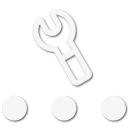An overlanding old-timer changed my thinking today on getting started. Thought you might find his ideas helpful...
He said the first thing that I ought to do after acquiring a rig, before I buy anything for it, is to think like AN ULTRALIGHT BACKPACKER:
A. Determine the GVWR (gross vehicle weight rating) for the vehicle.
B. Go to a truck scale and weigh the vehicle.
C. Determine how much more weight I can safely add by subtracting B from A (of course, there is some wiggle room in that figure).
D. Build a spreadsheet: keep track of the actual weight of every object I add to the vehicle and how much available weight remains.
F. Learn the weight of every object that I plan to add and decide whether the value of the item justifies the added weight.
I'm an overland newbie, but I'm also an ultralight backpacker, so the mindset isn't new to me. I just never thought to apply this concept to a truck.
I don't know. What do you think? Does this approach make sense?
He said the first thing that I ought to do after acquiring a rig, before I buy anything for it, is to think like AN ULTRALIGHT BACKPACKER:
A. Determine the GVWR (gross vehicle weight rating) for the vehicle.
B. Go to a truck scale and weigh the vehicle.
C. Determine how much more weight I can safely add by subtracting B from A (of course, there is some wiggle room in that figure).
D. Build a spreadsheet: keep track of the actual weight of every object I add to the vehicle and how much available weight remains.
F. Learn the weight of every object that I plan to add and decide whether the value of the item justifies the added weight.
I'm an overland newbie, but I'm also an ultralight backpacker, so the mindset isn't new to me. I just never thought to apply this concept to a truck.
I don't know. What do you think? Does this approach make sense?
Last edited:














